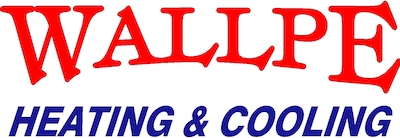
For a lot of families, there always seems to be a long list of home improvement tasks that they would like to do or new ideas they’d like to attempt. While some may not be necessary, furnace replacement is an example of a project that could be vital to keeping your home comfortable through the winter months in Greensburg.
Getting a new furnace is a great investment. You’ll definitely feel the return-on-investment on your indoor comfort along with your energy bills, but it may be a bit intimidating at first. The good news is that when you purchase a new energy-efficient furnace, you may be eligible for a federal tax credit.
According to ENERGY STAR®, the Non-Business Energy Property Tax Credits were extended through December 31, 2020. In order to receive the tax credit, you are required to buy a furnace that has earned the ENERGY STAR label. However, it can’t be a furnace that is labeled ENERGY STAR for “U.S. South Only.” When shopping for furnace replacements, watch for products with the ENERGY STAR rating so you can be confident you’re picking a high-efficiency furnace.
At Wallpe Heating & Cooling, our team can help you find an option that meets your needs and makes sure you qualify for this tax credit. While ENERGY STAR products indicate high efficiency, it’s important to clarify that the furnace you pick has an Annual Fuel Utilization Efficiency (AFUE) greater than 95, in order to qualify for the tax credit. AFUE means the percent of heat produced for every dollar of fuel consumed.
Qualifying for the tax credit will not be the only savings you’ll find when you get a new high-efficiency furnace. Some of the most efficient models can save you hundreds of dollars on your energy bills all year long. And you’ll also have more confidence in your HVAC system to maintain your indoor space at just the right temperature.
If you think of questions about your eligibility for a tax credit, or if there are additional local savings you might be eligible for by getting a new high-efficiency furnace, give our technicians at Wallpe Heating & Cooling a call at 812-663-7252. You could also visit ENERGY STAR or contact your local utility company if you have questions about other eligible home products.
